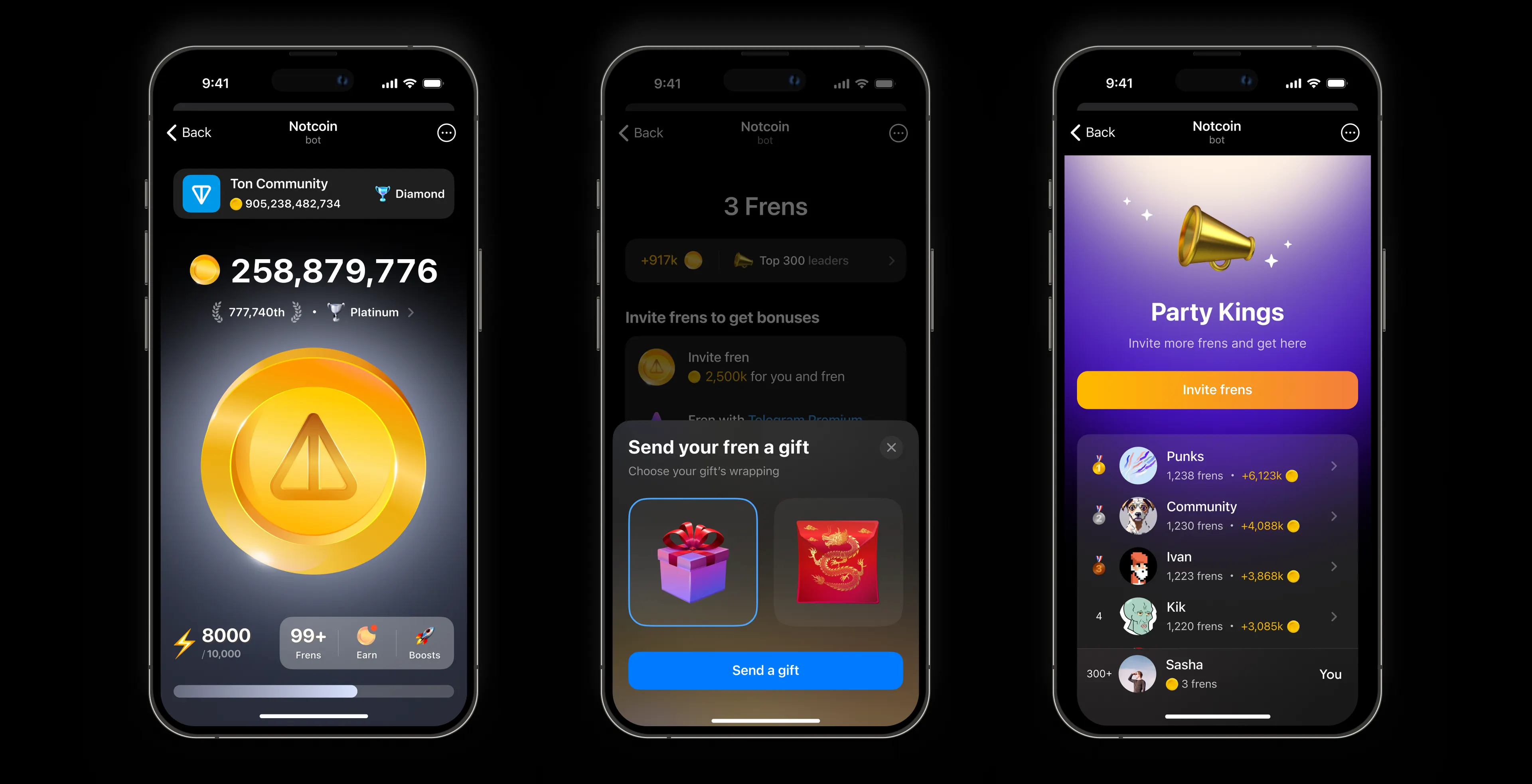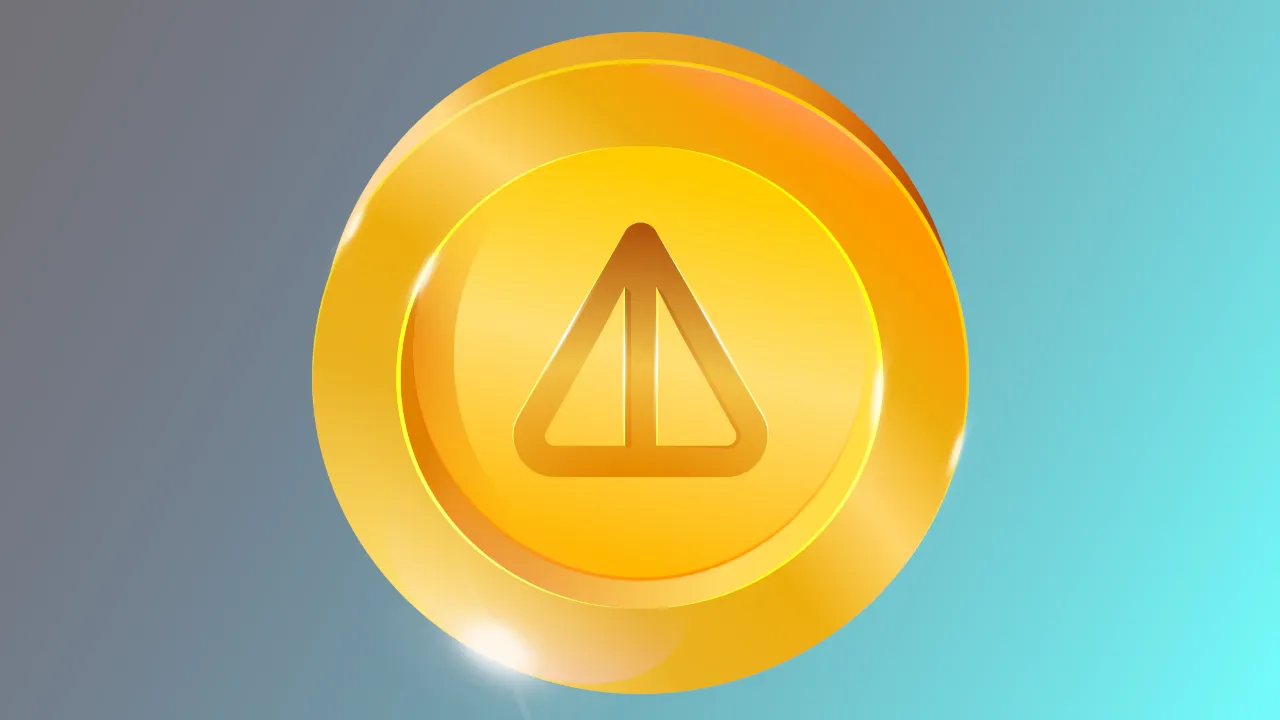Notcoin popped onto crypto gamers’ radar at the start of the year, as millions of Telegram players flocked to the chat app’s curious coin-tapping distraction—and were apparently mining billions of Notcoin in the process.
But there was a curious catch: the coins weren’t real, at least not in the on-chain cryptocurrency sort of way. Now there are more than 25 million “Notcoiners” furiously tapping that same gleaming coin, competing in squads, and absorbing messages that are somewhat nihilistic but mostly memey in vibe.
“We’re promising nothing,” said Open Builders founder Sasha Plotvinov, whose team is building Notcoin, during a recent interview with Decrypt’s GG.
That’s mostly true, but Notcoin has confirmed that it will indeed launch a real, on-chain token on The Open Network (TON) in the coming weeks, and that vast player base that has been tapping and tapping for essentially nothing will soon receive something.
A TON representative told Decrypt’s GG that the token launch is currently targeted for late March or early April.
Even with firm plans emerging, Notcoin still very much feels like an enigma, even as it has quietly become what is apparently the largest crypto game (pre-crypto game? soon-to-be-crypto game?) in terms of player base. So what is Notcoin? We put the question to Plotvinov, and you can watch his full response in the video clip embedded above. Here’s the gist of it:

1) Notcoin is a viral clicker game
This explanation is the most obvious one. Notcoin’s core gameplay is all about clicking or tapping the coin on the screen to mine Notcoin—or for now, at least, a purely in-game version of Notcoin that will eventually translate into a real cryptocurrency.
Notcoin isn’t breaking much ground in terms of the main way you interact with the game, as we’ve seen scads of clicker games in the past. But there are some interesting social and meta-narrative hooks around the tapping that feel like new ways to build something around the super-simple premise, which only draw some players deeper into the experiment.
Fam 💛 https://t.co/z2rXK19LVb
— Notcoin Ø (@thenotcoin) February 21, 2024
2) It’s a “fair” way to award a ton of tokens
Plotvinov said this is a key explanation, and it starts to get at the heart of what Notcoin really is. Sure, it’s a simple clicker game, but it’s one that will award large quantities of what’s probably best called a meme coin to what has now become a very large number of people. And that was the goal, he explained.
“[It’s] basically an experiment on how to distribute coins in a fair manner to a huge amount of people,” he said. “The idea is actually to make sure that there [are] no huge gaps between those who are making more Notcoin and less Notcoin. We want to be a bit fair, and incentivize those users who really contribute to Notcoin.”
3) It’s a more transparent way to launch a token
Asking people to click a button potentially thousands of times to receive magic internet money might sound a bit nonsensical, but Plotvinov and his team think that Notcoin’s plan for distributing tokens is actually more fair and transparent than many other projects.
“Web3 is not really healthy sometimes,” he claimed. Many projects are actually playing a weird game with their community, just trying to scam people.”
OKAY SOME ALPHA RUMORS FRENS $NOT will be minted in a few weeks, no pre-sales, no bullshit, guess the listing price hahah
Balances will be primary, your league, frens and activity are also important
Supply will be gradually burned when we go onchain, no new tokens will be…
— Notcoin Ø (@thenotcoin) January 27, 2024
He said that the Notcoin team is actively avoiding creating expectations for players, and isn’t pre-selling any tokens before the distribution. Ultimately, Plotvinov said that the goal for Notcoin is to try and bring the masses into crypto by pulling them in with an appealing hook and removing the complex barriers to handling the tokens.
“We can import some amount of users into Web3 products, or we can educate them and show them the value of decentralization and so on,” he said. “That’s actually the kind of solution for that kind of task: how to bring in millions of people, especially from Telegram with their 800 million monthly active users.”
“This audience is quite close,” Plotvinov concluded. “We just need to create some bridge—in a Web2 meaning—so that they will be easily onboarded into crypto.”
Edited by Ryan Ozawa.

